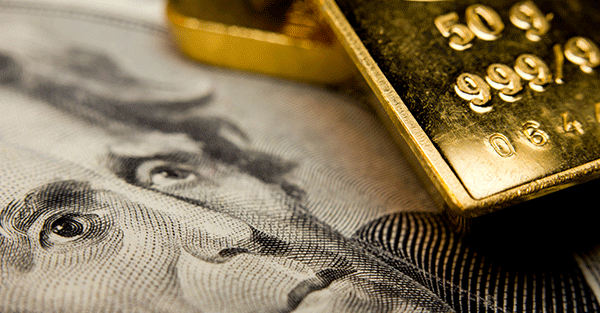[Editor’s note: Tim Price, London-based wealth manager and frequent Sovereign Man contributor, is filling in while Simon travels to Puerto Rico today.]
As Mark Twain is purported to have once said, “Predictions are hard, especially about the future.”
And with this principle in mind, libertarian Harry Browne advocated a four-factor portfolio to protect investors “no matter what the future brings”.
Such a portfolio would have to cater to at least four separate economic outcomes:
- Prosperity: a period during which living standards are rising and the economy is growing;
- Inflation: a period during which consumer prices are rising;
- Recession: a period during which the growth is slowing (or negative);
- Deflation: a period in which consumer prices are declining.
Only four types of investments would cover all these separate bases in Browne’s so-called ‘Permanent Portfolio’.
For example, stocks would thrive during a period of prosperity. But during deflation and recession, stock prices fall… so cash would be one of the best assets to hold.
Bonds perform reasonably well during periods of prosperity, but also during recession and deflation.
But during periods of intense inflation, gold perform exceptionally well, unlike cash, which loses value.
Harry Browne’s idea was simple: allocate 25% of an investment portfolio to each investment – cash, gold, bonds, and stocks– and keep the money parked there forever.
The idea worked.
For the nearly three decades between January 1970 and December 1998, the portfolio delivered average returns of 9.9% per annum, a comfortable 4.5% per year above inflation.
And the permanent portfolio continued growing through every economic environment it faced. It even gained in real terms during the highly inflationary 1970s.
More importantly, the portfolio was also remarkably stable.
In the course of 29 years the portfolio lost value in only three: it lost 6.2% in 1981, 0.7% in 1990, and 2.4% in 1994.
Those are negligible losses compared to the average loss suffered by most investors in those same years.
On October 19, 1987, when the Dow Jones Industrial Average fell by 22.6% in a day, Harry Browne’s permanent portfolio lost just 4.3% of its value. And it still returned a gain of 5.3% for the year.
So on a risk-adjusted basis, the portfolio posted very strong returns for decades.
Until now.
The Permanent Portfolio allocates 25% to bonds.
Yet with $13 trillion worth of government bonds now victimizing investors with negative yields and desperate, experimental monetary policy, bonds have become foolish investments.
Another 25% of the portfolio is allocated to cash.
But cash is becoming dangerous to own, with more and more governments floating the idea of cash controls or all-out cash bans.
The latest assault from the establishment on physical cash comes via Harvard Professor Ken Rogoff, who advocates for the abolition of cash in a recent essay ‘The curse of cash’.
Rogoff, of course, relies on the old fascistic premise that physical cash can only be used for the purposes of crime.
This is just a convenient excuse to be marketed to the gullible.
The fundamental reason why the establishment wants to abolish cash is as a necessary precursor to the imposition of negative interest rates.
As interest rates head below zero, savers will rightly be resistant to the idea of paying banks for keeping cash on deposit.
The obvious answer for any responsible, sensible saver is to remove his/her savings from the bank and hold physical cash.
Policymakers will try to prevent this from happening at all costs; even a small uptick in cash withdrawals poses extreme risk for many already-fragile banking systems.
Rogoff and like-minded policy wonks also claim that when people ‘hoard cash’ it’s bad for the economy; in their view, people should be spending, not saving.
This is an incredibly disturbing view shared by many policymakers with God complexes; as Jay Hughes responded to Rogoff in a Wall Street Journal editorial,
“When someone uses the term ‘hoarding’ instead of ‘saving’, it means deep down they believe that others are more entitled to your money than you are.”
Hughes is right.
Our entire central bank controlled financial system is based on the premise that unelected, unaccountable bureaucrats should be able to direct individuals’ consumption and production behavior from ivory tower conclaves.
And they have abused their authority to the point that two entire asset classes are now poisonous.
So with cash and bonds off the table thanks to negative interest rates and a growing movement to abolish cash, an investment strategy like the Permanent Portfolio which allocates 50% to cash and bonds can no longer accomplish its purpose.
This isn’t Harry Browne’s fault. He died in 2006.
Never in his wildest imaginings would he have foreseen central banks wilfully and so feverishly destroying the values of their currencies and forcing savers to suffer the indignity of punitive yields.
Of Permanent Portfolio’s original four asset classes, only two now make any sense: stocks, and gold.
Stocks are a mixed bag.
Shares of productive businesses can be wonderful ‘real assets’, particularly when procured with a value-based approach at prices far below the business’s intrinsic value.
Great businesses purchased at great prices truly are great assets.
Yet so many markets around the world are in bubble territory right now with valuations near all-time highs.
Shares of overpriced businesses selling for 350x earnings cease being ‘real assets’ and join the club of toxic ‘paper assets’.
This is especially the case when you realize that in many jurisdictions you don’t actually own the stocks you buy.
Your shares are likely registered in your broker’s name, not yours. You merely have a claim on your broker’s balance sheet… hence being ‘paper assets’.
As for the original Permanent Portfolio asset classes, gold still shines.
It is the obvious remaining REAL asset, which is something you want to own when there is every reason to expect more inflationism and monetary debauchery from the world’s major central banks.
Plus gold is a lot easier to transport and exchange than an oil well or apartment building.
You’ll find this to be a remarkable benefit as the ‘hoarding’ crowd’s cash ban chorus grows ever louder.








